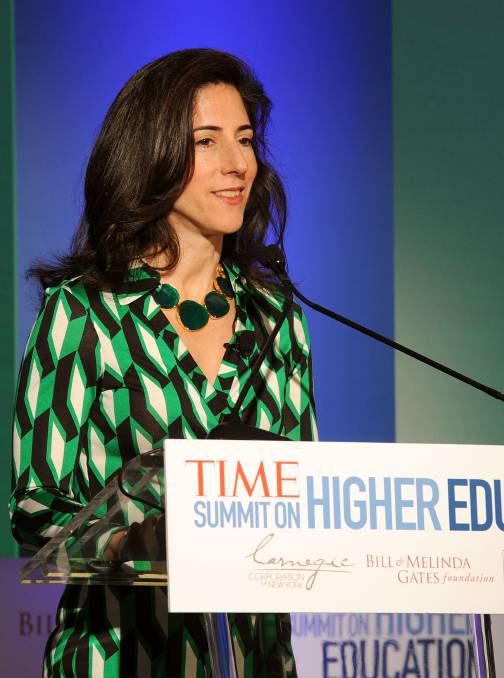news, latest-news,
Australian students are continuing to slide in international performance tables, with ACT students going down about as fast as (but typically still doing better than) those in the rest of Australia. The Organisation for Economic Co-operation and Development conducts its Program for International Student Assessment (PISA) survey of performance in reading, maths and science every three years. It finds that although the performance of Australian students is close to the OECD average, unusually among developed countries, Australia’s performance has been getting worse over time. Should it worry us? That depends partly on what we think will be needed for needed for living in and surviving in the rest of the century. There’s no necessary reason to think it will be maths and science as we’ve known them. Machines might do those things for us. But a mid-year report by Deloitte Access Economics finds employment has been growing fastest among the least routine jobs, the ones that machines can’t do. It says eight in every 10 of the jobs created between now and 2030 will be knowledge jobs. The skills we will be short of relate to conflict resolution, leadership, health and time management. Those we will be oversupplied with relate to manual work. We will have to shift from “from hands to heads to hearts”. This needn’t necessarily mean maths, reading and science as they have been taught. In her just-completed PhD thesis on leadership, author Gaia Grant talks about education being too narrow, too often about “right and wrong”, when the education of the future will need to be more about learning to hold contradictory yet complementary positions, being able to manage complexity. Students of the future need to become “comfortable with grey”. She talks about “ambidexterity” – which for her means the ability to explore new ideas while preserving old ones in order for ideas to grow. There’s a risk that the digital revolution, the great disrupter, will make us less flexible rather than more – less able to cooperate, focus, care and play – by colonising our attention and dividing us into tribes. Employers increasingly complain about young people being unable to focus, communicate and commit. In part that might be because they are tech addicted. Tech titans might have made machines that are addictive by design and narrow the skill sets needed to be reliable, social, empathetic and emotionally well. Darren Coppin of Esher House, a developer of behavioural intervention programs, told the ABC this week that that school leavers increasingly think they are management material from day one and find it hard to deal with colleagues. The expectation that they bring their own portable devices to school has led to an environment that has cut time to imagine, play and deep read. It has isolated children from each other, even though the supporters of Google Classroom argue it allows for collaboration. More often, collaboration is very limited. There’s emerging evidence that screen culture is creating the illusion of control but is limiting children’s ability to develop the social and emotional skills they will need to make sense of the world. Some schools are recalibrating, using technology to limit the times and purposes for which their students can access the internet. Sydney Grammar is one of the first. ACT government schools are starting to push back as well. I know of two public high schools that are looking at ways to reinvigorate play spaces in order to cut time spent on screens. Meanwhile, parents are exhausted by having to manage access to digital technology at home. They have every reason to be suspicious of Google Classroom. In her book, Do No Evil, Financial Times journalist Rana Foroohar argues that Google and other big tech firms have taken us hostage by manipulating our choices, harvesting our data and commandeering our time. Foroohar encourages digital detoxes. “Try going offline. If nothing, it will give you a sense of what a powerful force these companies are in your life. They have become as important as the utilities, water and electricity, with enormous power over us, cognitively, economically and politically,” she says. We would probably all benefit from unplugging and thinking about what the digital age is doing to us. If only the smoke would lift, so we could go outside.
https://nnimgt-a.akamaihd.net/transform/v1/crop/frm/8WgcxeQ6swJGymJT6BMGEL/e1ccbffa-8d98-49b9-9ed6-09f3a35635ff.jpg/r4_444_8684_5348_w1200_h678_fmax.jpg
Australian students are continuing to slide in international performance tables, with ACT students going down about as fast as (but typically still doing better than) those in the rest of Australia.

We would probably all benefit from unplugging. Picture: Shutterstock
The Organisation for Economic Co-operation and Development conducts its Program for International Student Assessment (PISA) survey of performance in reading, maths and science every three years.
It finds that although the performance of Australian students is close to the OECD average, unusually among developed countries, Australia’s performance has been getting worse over time.
Should it worry us? That depends partly on what we think will be needed for needed for living in and surviving in the rest of the century. There’s no necessary reason to think it will be maths and science as we’ve known them. Machines might do those things for us.
But a mid-year report by Deloitte Access Economics finds employment has been growing fastest among the least routine jobs, the ones that machines can’t do.
It says eight in every 10 of the jobs created between now and 2030 will be knowledge jobs. The skills we will be short of relate to conflict resolution, leadership, health and time management. Those we will be oversupplied with relate to manual work.
We will have to shift from “from hands to heads to hearts”.
This needn’t necessarily mean maths, reading and science as they have been taught.
In her just-completed PhD thesis on leadership, author Gaia Grant talks about education being too narrow, too often about “right and wrong”, when the education of the future will need to be more about learning to hold contradictory yet complementary positions, being able to manage complexity.
Students of the future need to become “comfortable with grey”. She talks about “ambidexterity” – which for her means the ability to explore new ideas while preserving old ones in order for ideas to grow.
There’s a risk that the digital revolution, the great disrupter, will make us less flexible rather than more – less able to cooperate, focus, care and play – by colonising our attention and dividing us into tribes.
Parents are exhausted by having to manage access to digital technology at home. They have every reason to be suspicious of Google Classroom.
Employers increasingly complain about young people being unable to focus, communicate and commit. In part that might be because they are tech addicted.
Tech titans might have made machines that are addictive by design and narrow the skill sets needed to be reliable, social, empathetic and emotionally well.
Darren Coppin of Esher House, a developer of behavioural intervention programs, told the ABC this week that that school leavers increasingly think they are management material from day one and find it hard to deal with colleagues.
The expectation that they bring their own portable devices to school has led to an environment that has cut time to imagine, play and deep read. It has isolated children from each other, even though the supporters of Google Classroom argue it allows for collaboration.
More often, collaboration is very limited.
There’s emerging evidence that screen culture is creating the illusion of control but is limiting children’s ability to develop the social and emotional skills they will need to make sense of the world.
Some schools are recalibrating, using technology to limit the times and purposes for which their students can access the internet. Sydney Grammar is one of the first.
ACT government schools are starting to push back as well. I know of two public high schools that are looking at ways to reinvigorate play spaces in order to cut time spent on screens.

Rana Foroohar argues that Google and other big tech firms have taken us hostage. Picture: Getty Images
Meanwhile, parents are exhausted by having to manage access to digital technology at home. They have every reason to be suspicious of Google Classroom.
In her book, Do No Evil, Financial Times journalist Rana Foroohar argues that Google and other big tech firms have taken us hostage by manipulating our choices, harvesting our data and commandeering our time.
Foroohar encourages digital detoxes.
“Try going offline. If nothing, it will give you a sense of what a powerful force these companies are in your life. They have become as important as the utilities, water and electricity, with enormous power over us, cognitively, economically and politically,” she says.
We would probably all benefit from unplugging and thinking about what the digital age is doing to us.
If only the smoke would lift, so we could go outside.
- Toni Hassan is the author of Families in the Digital Age (Hybrid) and an adjunct research scholar with the Australian Centre for Christianity and Culture, Charles Sturt University in Canberra.


